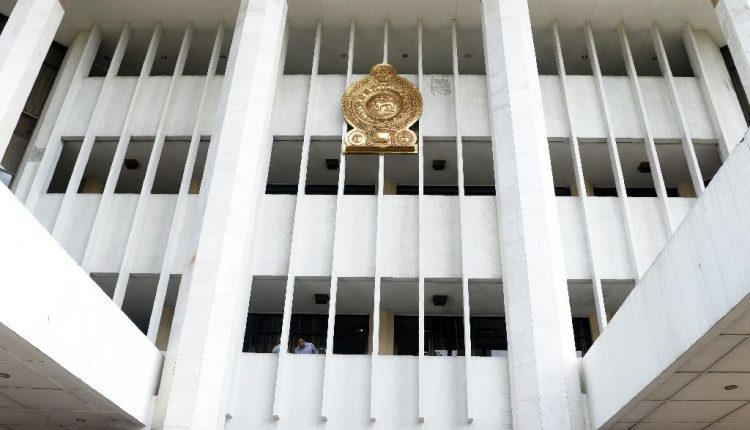By P. K. Balachandran
COLOMBO – At least 10 cases are expected to the filed in the Supreme Court seeking a referendum on the proposed 20th Constitutional Amendment (20A), according to reliable sources in the Sri Lankan opposition.
As soon as the government placed the 20th Amendment bill on the table of the House on Tuesday (22), a lawyer filed a petition in the Supreme Court challenging it and seeking a referendum on it on the grounds that the bill seeks to change the fundamental features of the Sri Lankan Constitution.
Any bill which alters a fundamental feature of the Constitution has to be ratified by the people at large in a referendum, apart from a two thirds majority in Parliament.
“At least ten petitions seeking a referendum are expected to be filed in the seven-day period given to file petitions against the bill,” senior counsel and MP, M.A. Sumanthiran said.
“When petitions are filed in the Supreme Court the parliamentary process in regard to 20A comes to a halt. Everything will depend on the Supreme Court’s determination. And the court gets three weeks to give its verdict,” Sumanthiran explained.
President Gotabaya Rajapaksa has been firm in his stand that the bill as drafted and published in the government gazette would not be altered and any changes could be made only at the Committee Stage in Parliament. But there are serious reservations about the contents of the bill both in the opposition and in the ruling Sri Lanka Podujana Peramuna (SLPP).
“In the SLPP parliamentary group, Gevindu Kumaratunga, known to be close to Gotabaya Rajapaksa, had spoken against the 20A,” an MP said.
To ward off criticism of the various clauses in the 20A, President Gotabaya has said that it is only a temporary measure to clean up and streamline the administration till an entirely new constitution is drafted with the consent of all stakeholders.
But the opposition is well aware that waiting for a new constitution to be drafted and adopted makes no sense given the dismal history of constitution making in Sri Lanka since 1978. Successive governments have tried do draw up an entirely new constitution and have gone even up to the final stage, but only to abandon it at the end.
Even key amendments have been repealed in favour of the entrenched system set up in 1978 by President J. R. Jayewardene. In a bold move in 2001, the 17th Amendment was enacted to put in place Independent Commissions to de-politicize the government’s functioning and tone down the gargantuan powers of the Executive Presidency. But this was abandoned in 2010. President Mahinda Rajapaksa got the 18th Amendment passed in 2010 to restore the powers of the Executive Presidency. Come 2015, when the regime changed, the 19th Amendment was enacted to nullify the 18A. Now President Gotabaya is trying to restore 18A by enacting 20A.
The SLPP and its allies have 149 MPs, apart from the Speaker, in the Sri Lankan Parliament of 225 members. With a few members from the opposition putting their shoulders to the wheel, the 20A can be passed. But it is still not sure if any opposition members will support the government given the widespread opposition to the 20A, which gives gargantuan powers to the Executive President and virtually nullifies Parliament, the Cabinet of Ministers, and the Prime Minister. The Parliamentary Council (which will replace the powerful Constitutional Council set up by the 19A) is a toothless body which the President will be free to ignore. He will consult it but he need not take its advice.
The 20A also abolishes the Independent Audit Commission and the Independent Procurement Commission. This gives the Executive President a free hand in expenditure and procurement.
Given these and other drastic changes envisaged, the opposition has been seeking a referendum on the 20A and plans to get the Supreme Court to order one if it is not withdrawn.
-P K. Balachandran is a senior Colombo-based journalist who in the past two decades, has reported for The Hindustan Times, The New Indian Express and the Economist


